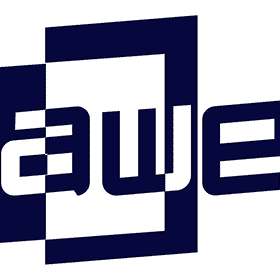Improve conception, implementation and documentation within your Augmented Reality projects by applying practical tools provided hereby:
- AR Patterns: Simplify AR application development with typical, ready-to-use solutions to common problems in designing Augmented Reality experiences.
- Illustration Toolbox: Create clear visual representations of Augmented Reality experiences that everyone can understand.
- Event-Condition-Action Diagram: Use the abstraction of Event-Condition-Action to streamline team collaboration with precise communication on what is going on in an interactive AR experience.
- AR Scenarios: Get access to a wide range of technology-specific AR scenarios and use cases with source code samples to inspire your own projects and to showcase the use and benefit of AR patterns, illustrations, and ECA diagrams.
Connect with our community to find solutions to your AR design and development challenges. Contribute by sharing your own ideas, examples, and projects.
News
What are AR Patterns?
AR patterns encompass high-level design patterns covering fundamental concepts for crafting immersive AR experiences. They serve as valuable means of communicating proven, reusable solutions to recurring design problems in AR development. A list of AR patterns is collected in a public catalog, including technical and User Experience (UX) aspects. AR pattern diagrams provide consistent, technology-agnostic documentation of AR design patterns. The catalog illustrates AR patterns through descriptions, spatial scenario visuals, pattern diagrams, and UI examples, with platform-specific source code samples for reference. For more details, see the paper: "AR Patterns: Event-Driven Design Patterns in Creating Augmented Reality Experiences".
What are AR Scenarios?
An AR Scenario in the context of AR Patterns refers to a detailed documentation of a specific scenario where combined AR patterns are applied with a particular HW/SW technology platform. It outlines how these elements are used to achieve a defined goal by creating a spatial AR user experience. An AR Scenario includes sample screen recording, title, use case category, detailed description, explanatory illustration, enumeration of used AR patterns, ECA diagrams, and a sample project with source code and media assets to demonstrate the practical application of AR patterns.
Browsing the catalog
The following table outlines several common placement intents for event-driven augmentation patterns that can be used to stage AR experiences. In AR, the real world serves as the spatial context for the stage, making users both spectators and performers. Their movements and perspectives influence the firing of events, leaving limited control over time and space for AR scenography (in contrast to film, theater, and VR/3D/game design).
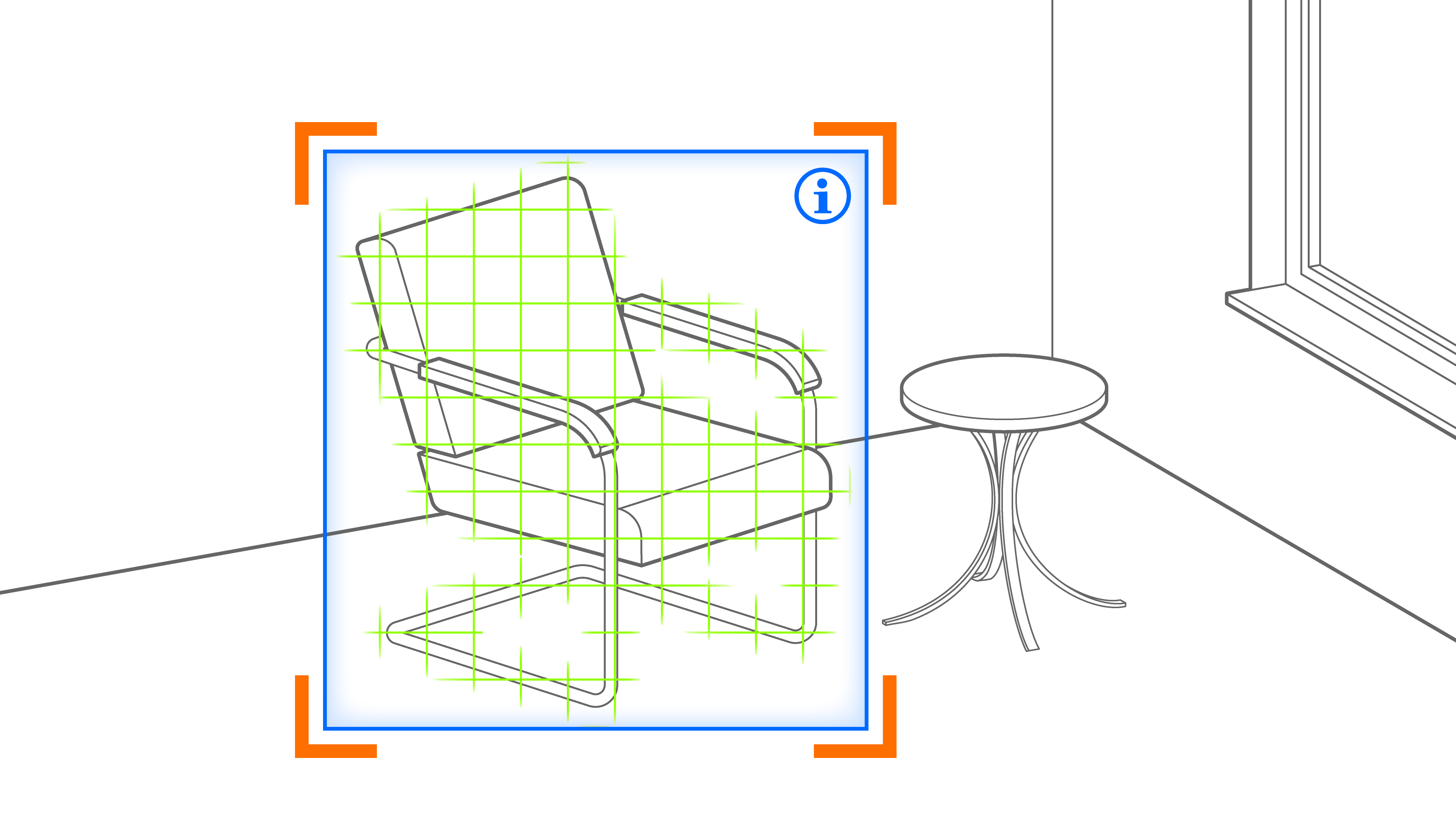
Segment Overlay Pattern
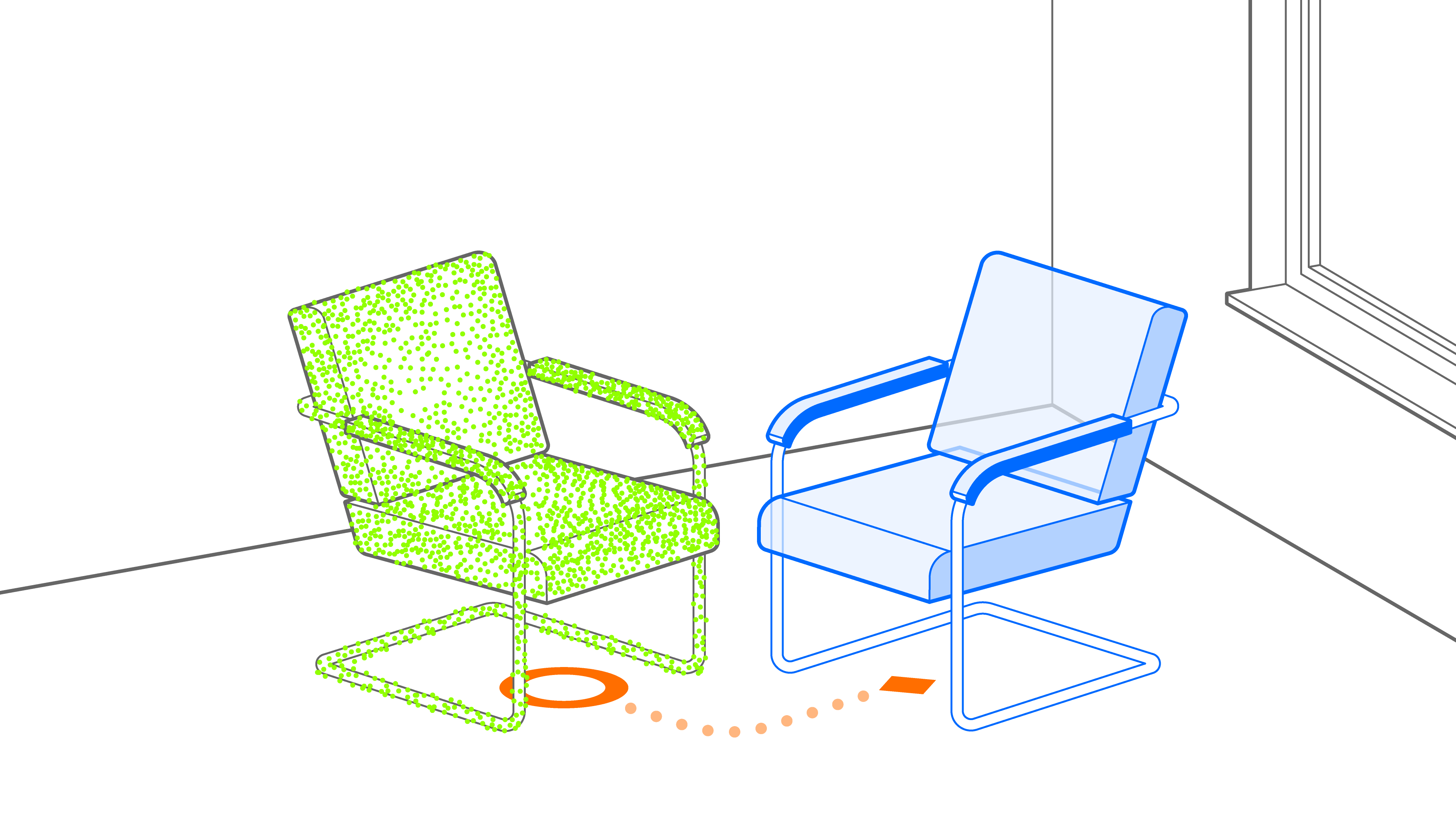
Captured Twin Pattern
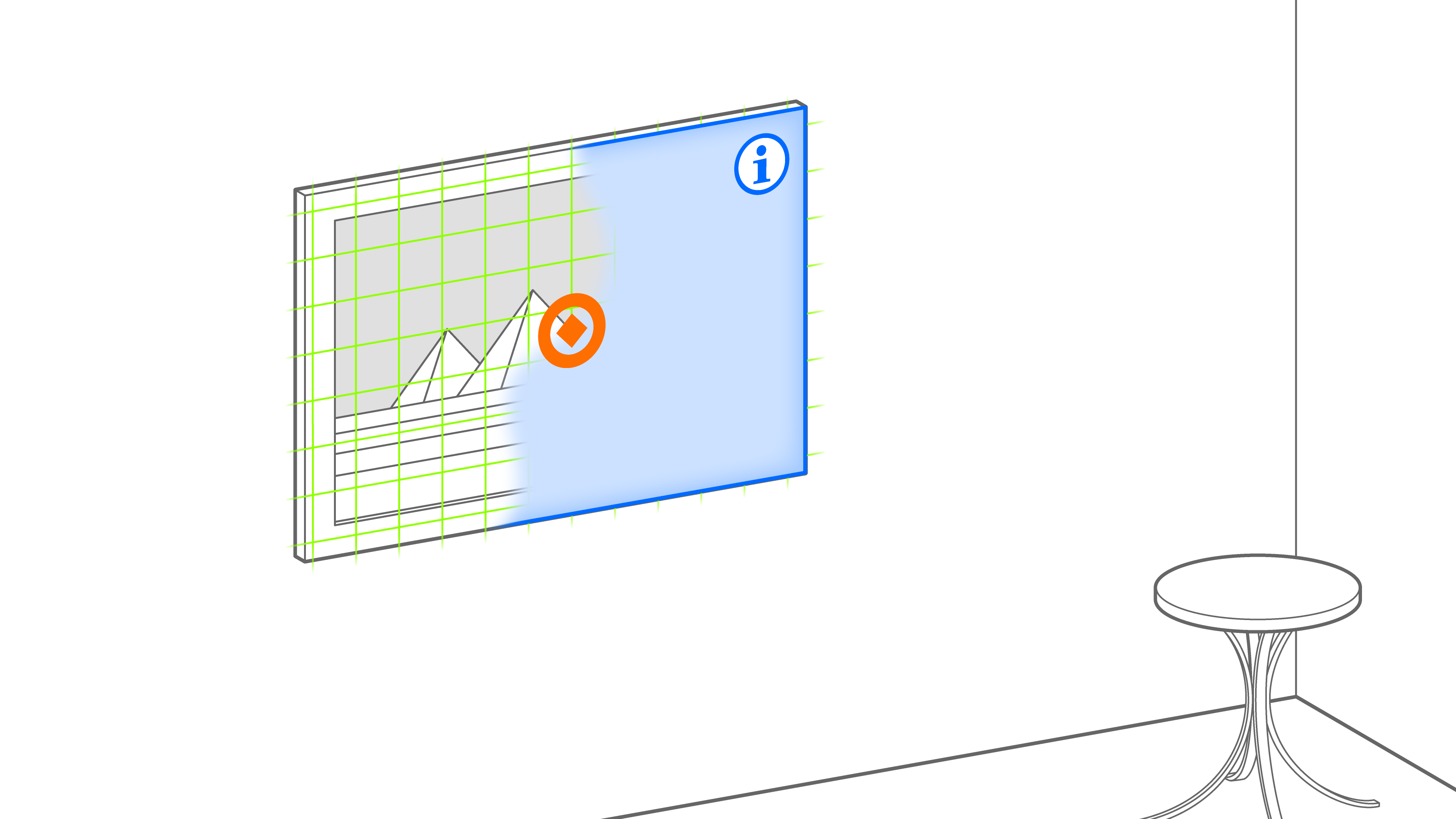
Superimposition Pattern
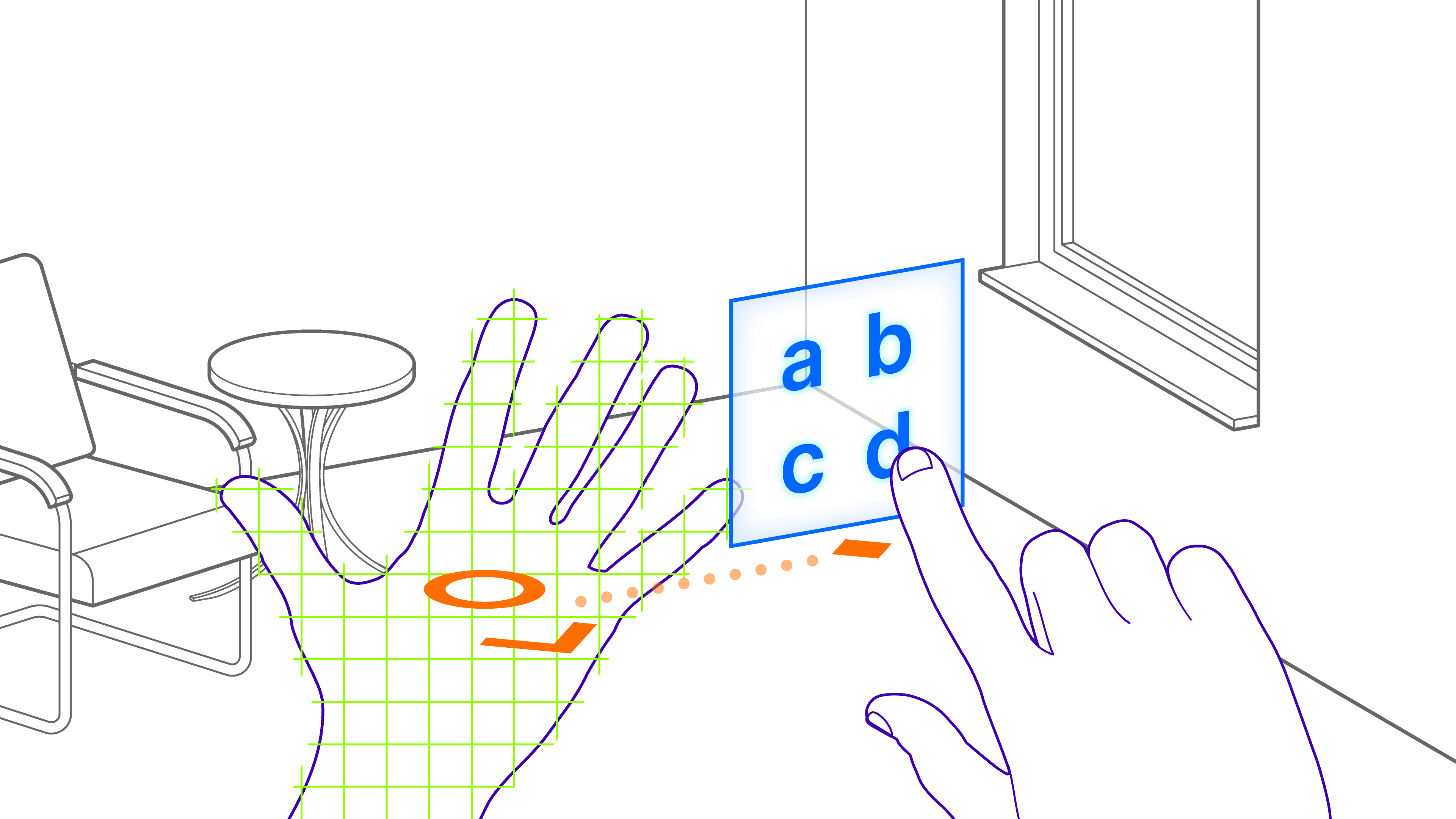
Hand/Palm Pop-up Pattern
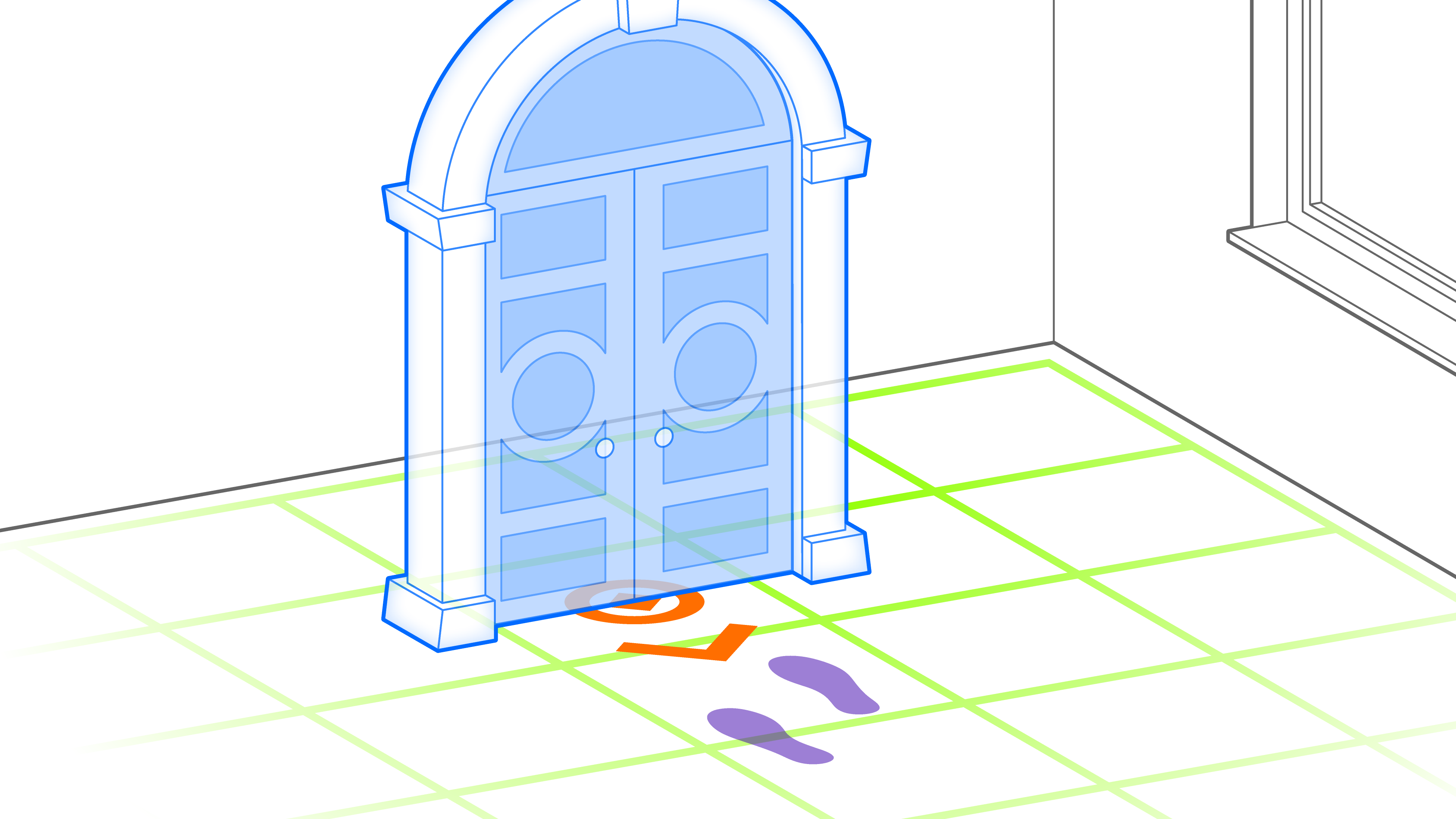
Pass-through Portal Pattern
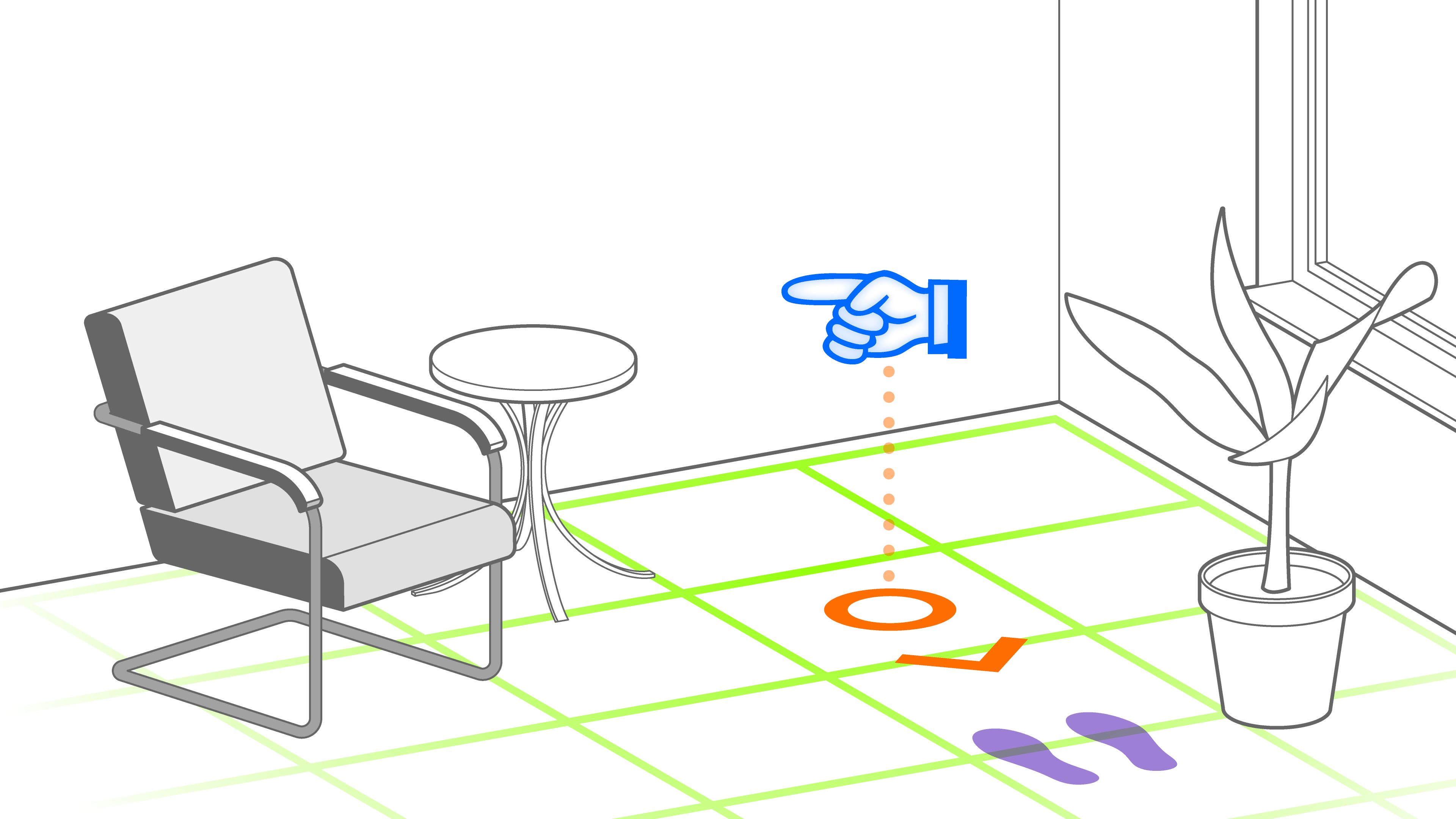
Attention Director Pattern
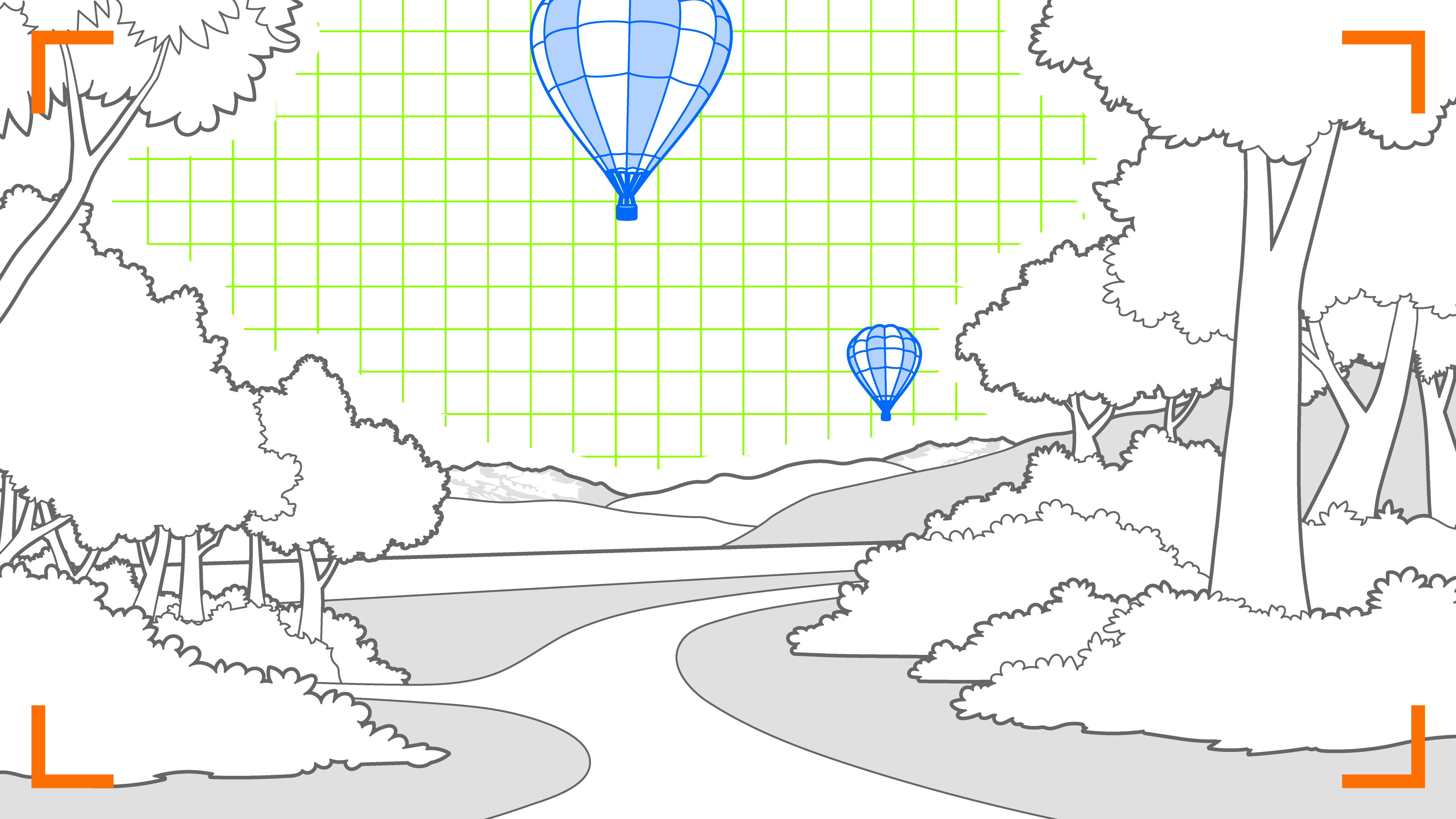
Area Enrichment Pattern
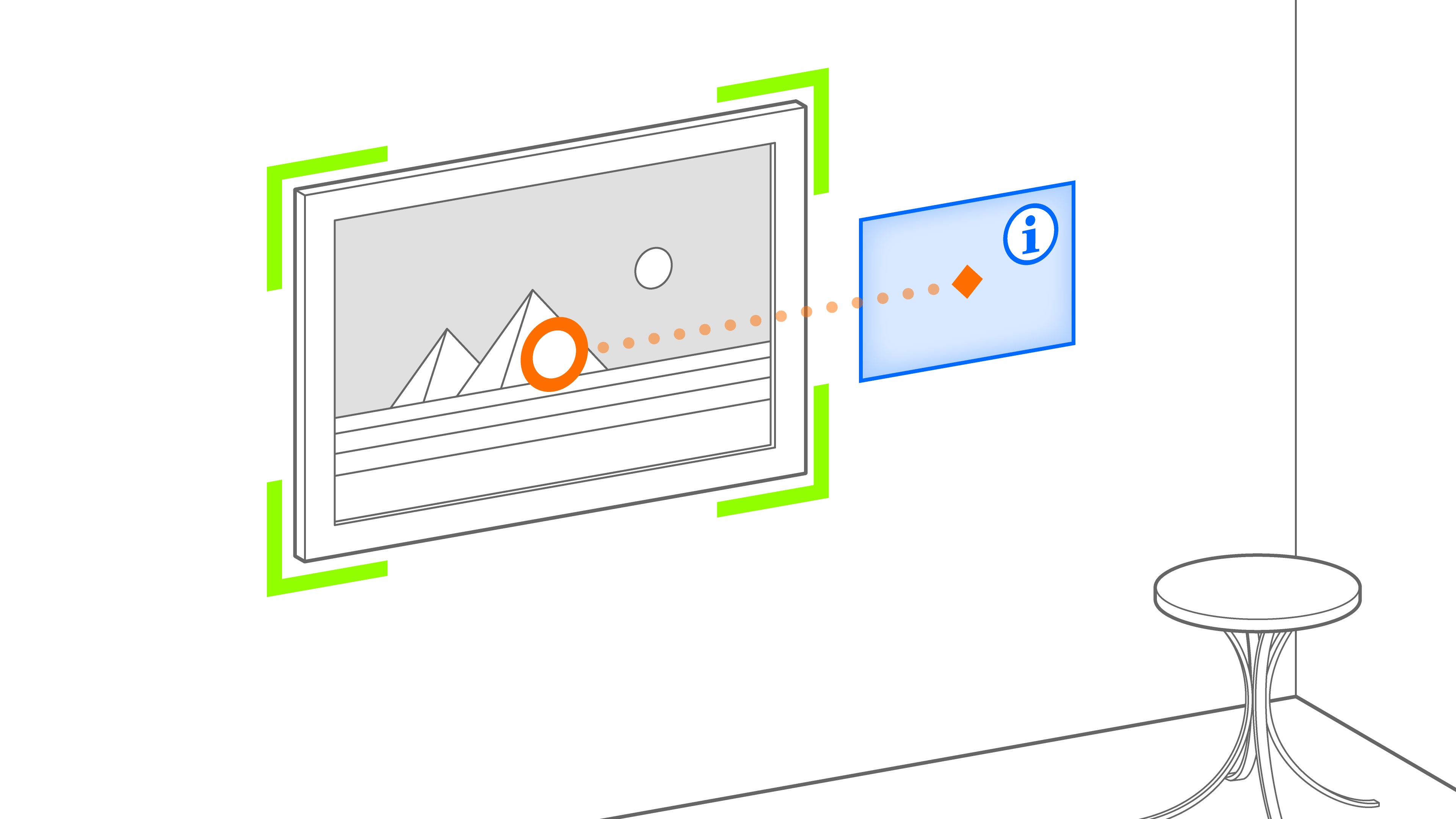
Anchored Supplement Pattern
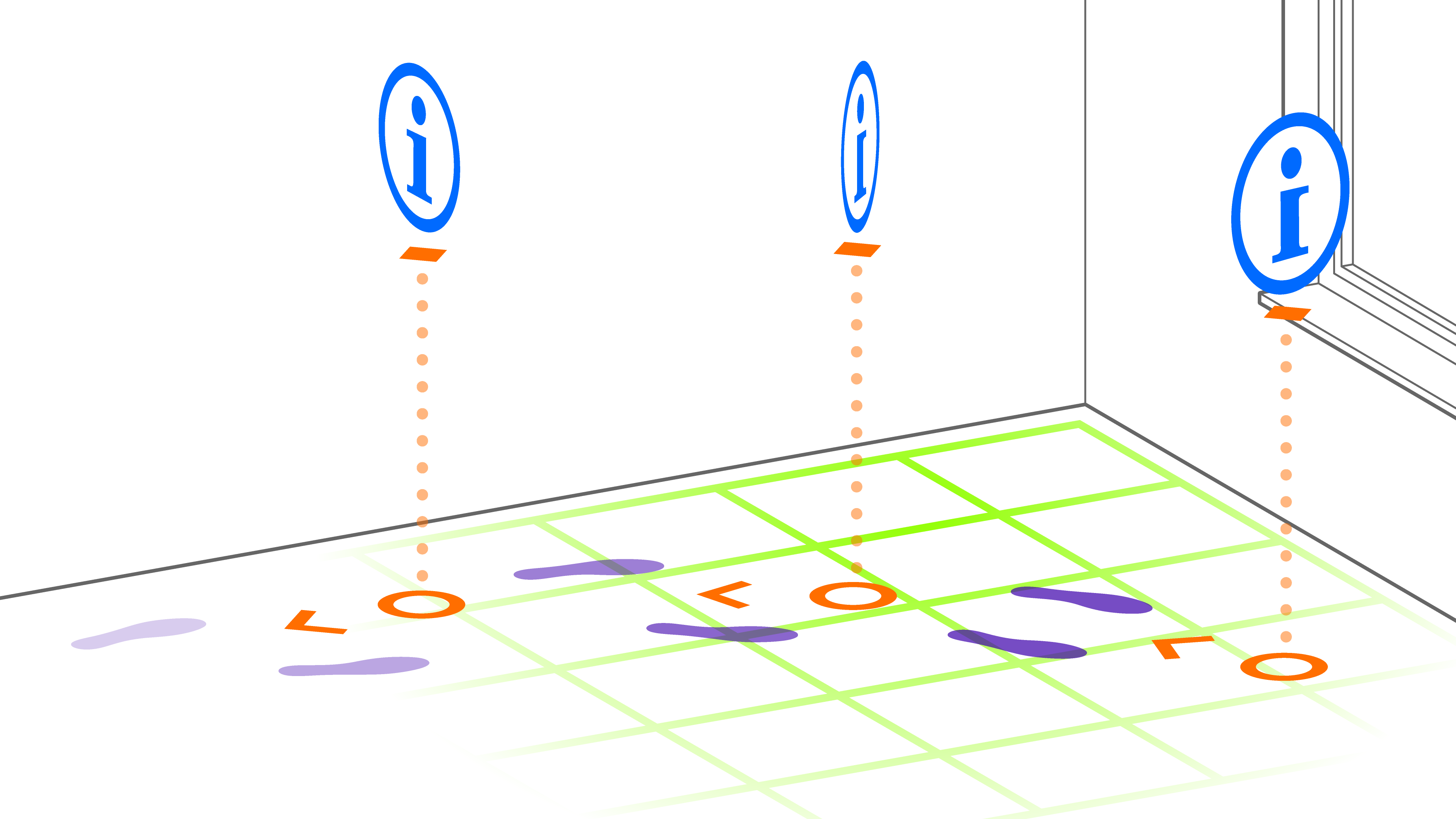
Tag-along Pattern
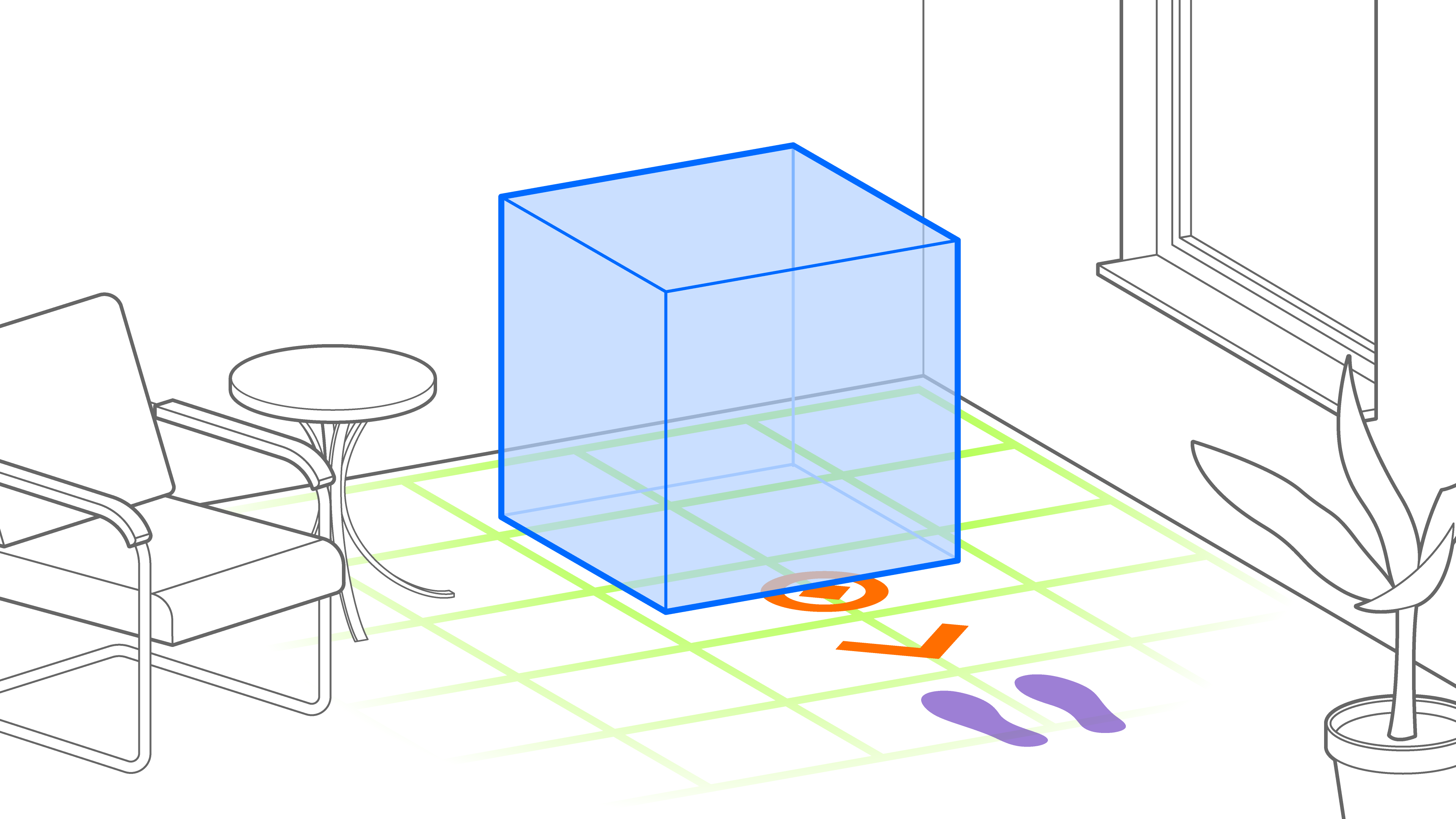
Ahead Staging Pattern
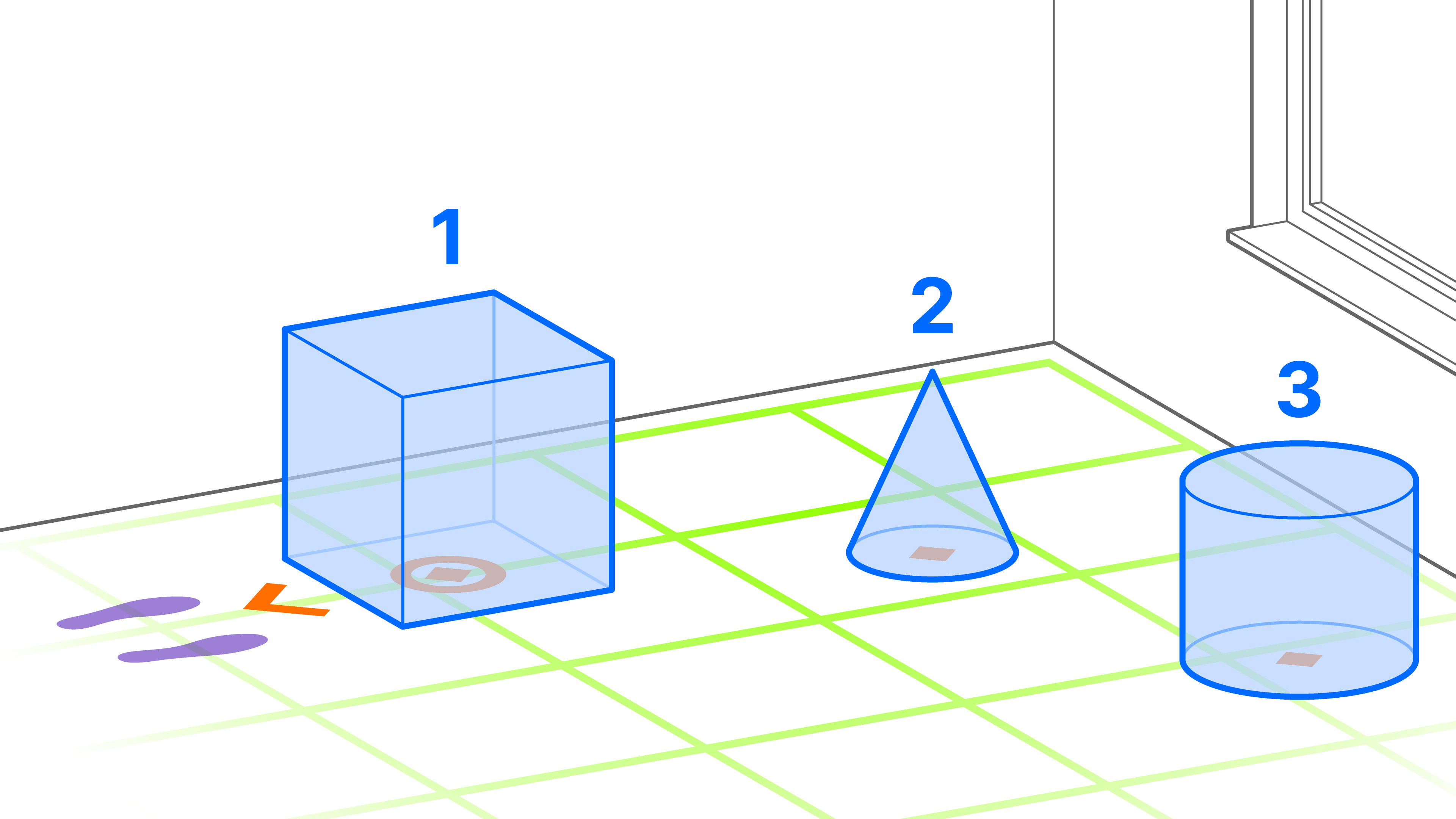
Staged Progression Pattern
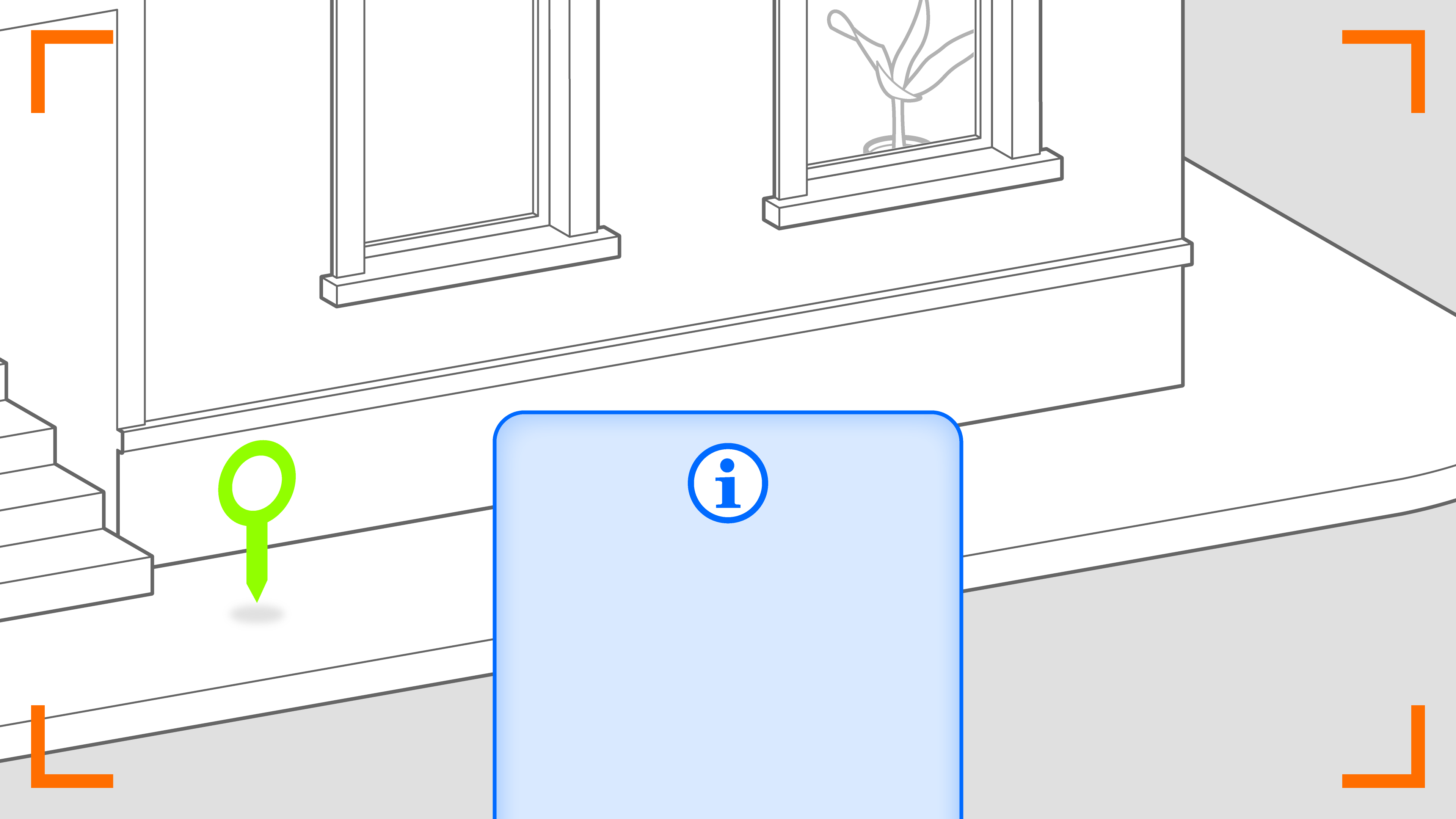
Geolocated Remark Pattern
Cite the Paper on AR Patterns
Ackermann, P. (2023). AR Patterns: Event-Driven Design Patterns in Creating Augmented Reality Experiences. In: Zachmann, G., et al. Virtual Reality and Mixed Reality. EuroXR 2023. Lecture Notes in Computer Science, vol 14410. Springer, Cham. https://doi.org/10.1007/978-3-031-48495-7_6

